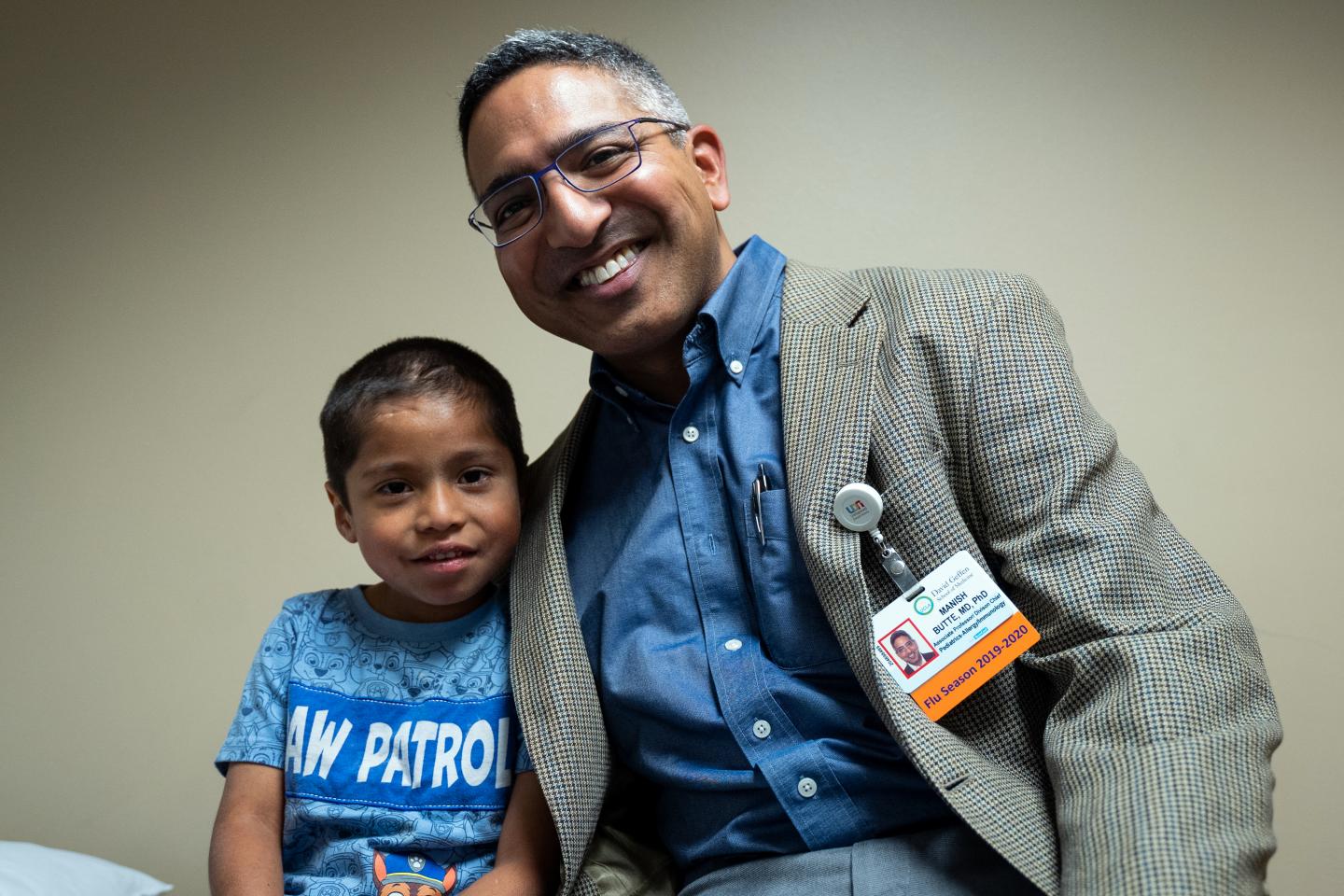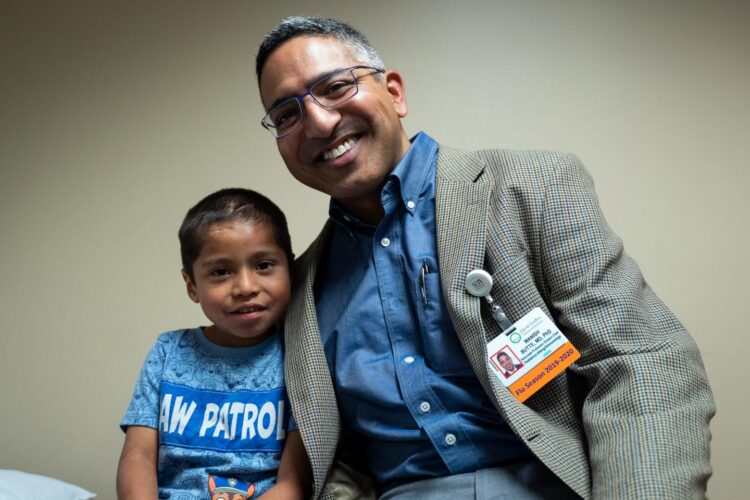UCLA team’s approach suggests possible path toward treating other severe infections

Credit: Nick Carranza / UCLA Health
In the June 11 issue of the New England Journal of Medicine, a team of UCLA physicians and scientists describes the first case of immune modulation being used to cure a severe and often fatal fungal infection. The team “retuned” a 4-year-old’s immune system so that it could fight off disseminated coccidioidomycosis.
The case, originally reported by UCLA in 2019, could pave the way for a new treatment for the infection, which affects hundreds of Americans each year, primarily in the Southwest, and kills approximately 40% of the people who contract it.
The technique described in the study could also suggest a new paradigm for treating other severe fungal infections, bacterial infections such as tuberculosis, and severe viral infections such as influenza and COVID-19.
“Immune modulation isn’t currently part of the strategy with any of these severe infections,” said Dr. Manish Butte, the report’s senior author, who holds the E. Richard Stiehm Endowed Chair in Pediatric Allergy, Immunology and Rheumatology at the David Geffen School of Medicine at UCLA. “Our case suggests that rather than hoping to get the upper hand with more and more antibiotics or antifungals, we can have some success by combining these established approaches with the new idea of programming the patient’s immune response to better fight the infection.”
Each year, more than 100,000 people are infected with Coccidioides fungi, which reside in the soils of California, Arizona and West Texas. Most people who are infected are asymptomatic, and about 20,000 experience the minor respiratory illness commonly known as Valley fever. The vast majority of people with Valley fever respond well to antifungal medications, but approximately 1% of the infections progress to disseminated coccidioidomycosis, in which the infection spreads rapidly throughout the body, leading to bone and tissue damage, and in many cases death.
“Historically, severe infections have been seen as ‘bad luck,'” Butte said. “Doctors haven’t looked at how we can harness the immune systems of these patients to fight the infection.”
According to a 2019 study in the International Journal of Environmental Research and Public Health, California spends between $700 million and $900 million a year in direct and indirect costs related to the care of people infected by the cocci fungus, including more than $300 million to care for the approximately 200 people with disseminated coccidioidomycosis.
The boy who was treated by Butte and his team had previously been treated with high doses of multiple antifungal medicines, but by the time he arrived at UCLA, he could barely walk or talk and required a feeding tube to eat. When UCLA physicians homed in on the patient’s immune system, they concluded that his T cells — the white blood cells that play a key role in the body’s immune response — were failing to properly recognize the invading fungus. The T cells were responding as though the infection was a parasitic infection rather than a fungal one.
That prompted the team to supplement the boy’s antifungal medications with an immune stimulator called interferon-gamma. And Dr. Maria Garcia-Lloret, a pediatric allergist and immunologist, suggested adding yet another medication, dupilumab, which was developed as a medication for allergic diseases and had never before been used to treat infections. Dupilumab is a prescription drug that has not been approved by the FDA as a treatment for disseminated coccidioidomycosis.
The combination of immune modulators restored the proper programming to the patient’s T cells — and the boy’s infection went away in a month.
###
The UCLA research team cites that the immunomodulatory approach has the potential to enhance the ability of patients to clear other types of fungal, bacterial, and viral infections that are not responding to established therapies.
In partnership with the Bakersfield, California-based Valley Fever Institute and the drugs’ manufacturers — Horizon Therapeutics, Regeneron Pharmaceuticals and Sanofi Genzyme — the UCLA researchers are planning to test the two drugs on other people with disseminated coccidioidomycosis. They also plan to study the approach for treating other types of severe infections.
The study’s other authors are co-first authors Dr. Monica Tsai and Dr. Timothy Thauland, and Chantana Bun, Dr. Sean Fitzwater and Dr. Paul Krogstad, all of the UCLA department of pediatrics; Dr. Alden Y. Huang of the Institute for Precision Health; and Emilie Douine, Dr. Stanley Nelson and Dr. Hane Lee of the UCLA department of human genetics. (Lee is also a member of the UCLA department of pathology and laboratory medicine.)
Media Contact
Jane Murcia
[email protected]
Related Journal Article
http://dx.





